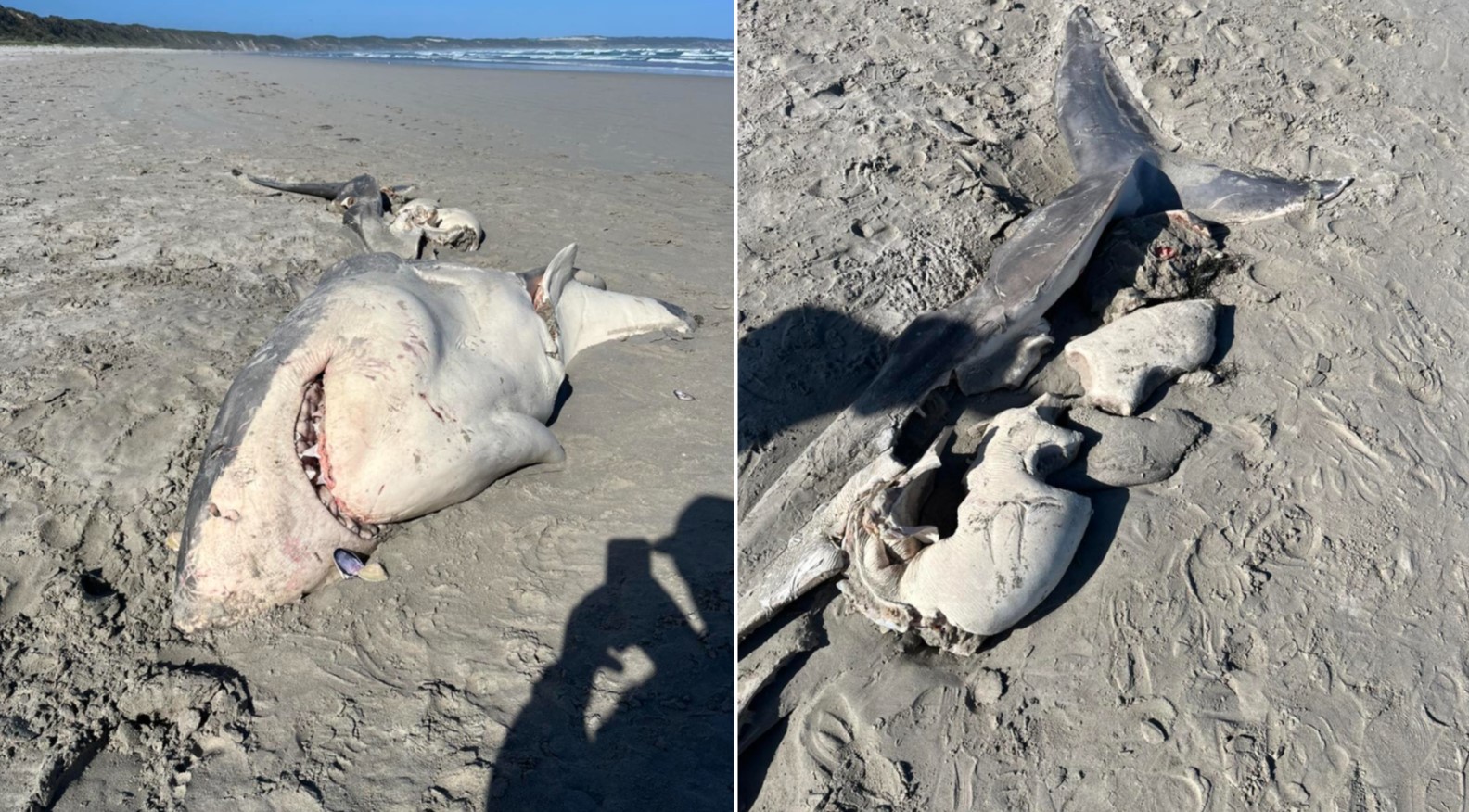Orcas attacked a great white shark to gorge on its liver in Australia, shredded carcass suggests
Orcas have been feasting on sharks' livers off the coast of South Africa for several years and could now be doing the same in Australia, the carcass of a great white suggests.

The carcass of a torn-up great white shark has washed up on a beach in Australia, fueling speculation that orcas attacked it to gorge on its liver — a first in these waters.
Residents found the 10-foot-long (3 meters), disemboweled shark near Cape Bridgewater, about 200 miles (320 kilometers) west of Melbourne in the state of Victoria. Nothing much remained of the animal's body except its head and tail, prompting witnesses and researchers to think orcas ripped the great white shark (Carcharodon carcharias) apart.
"I have never seen anything like that before," said Ben Johnstone, a local fisher and manager of the bait shop Portland Bait and Tackle who received a tip-off and went to inspect the carcass on Tuesday (Oct. 17). "The only other creature that could've caused it would be an even bigger white shark," he told Live Science in a message on social media.
Residents notified authorities, who came to collect the shark's body and sent samples to government agencies and academics for analysis, Australian Broadcasting Corporation (ABC) News reported.
Related: Watch orca tear open whale shark and feast on its liver in extremely rare footage
Orcas (Orcinus orca), also known as killer whales even though they are in the dolphin family, have attacked great white sharks before. But cases so far have mostly been confined to waters off the coast of South Africa, where two orcas nicknamed Port and Starboard have been feasting on shark livers for several years.
"We're not actually sure why killer whales are such picky eaters," Lauren Meyer, a research fellow in biological sciences at Flinders University in Australia, told ABC News. "We certainly see that they prefer the liver of white sharks, mako sharks, bronze whalers and sevengills, and even tiger sharks."
Sign up for the Live Science daily newsletter now
Get the world’s most fascinating discoveries delivered straight to your inbox.
Orcas may target shark livers because this organ is nutritious, with large amounts of fat and vitamins. Once a shark is killed, its liver, which is large and buoyant, floats to the surface, making it easy to eat. While it isn't "100% clear" that orcas attacked the beached great white, it's possible a pod ganged up on the shark to "slurp out" its liver, Meyer said.
A pod of orcas was seen circling in the bay near Cape Bridgewater two days before the shark washed up, ABC news reported.
"We know there are white sharks that go through that area and use it as an important corridor," Meyer said. "We also know that it's a place for killer whales where they hunt a number of different prey items."
Nine interactions between orcas and great white sharks were previously recorded in waters off the coasts of Australia and New Zealand, but this is the first time a disemboweled great white has washed up.

Sascha is a U.K.-based staff writer at Live Science. She holds a bachelor’s degree in biology from the University of Southampton in England and a master’s degree in science communication from Imperial College London. Her work has appeared in The Guardian and the health website Zoe. Besides writing, she enjoys playing tennis, bread-making and browsing second-hand shops for hidden gems.









